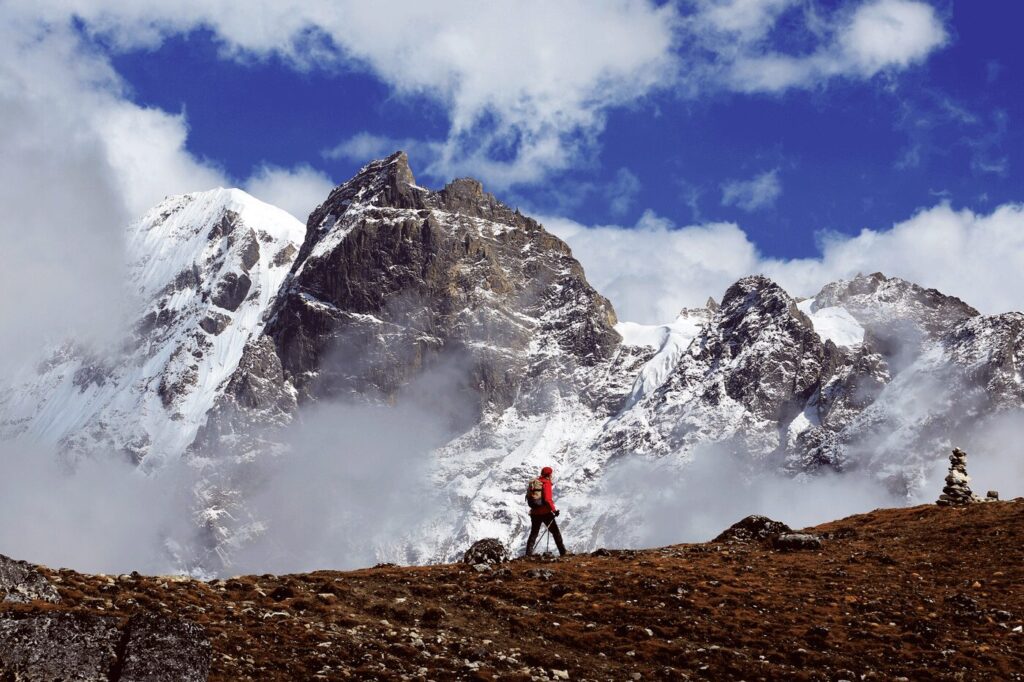Reflections on Jomolhari trek

Chhimi Dema
” A friend said that at this rate there might not be snow on this mountain in a decade or two hence.
What a loss it would be! “
When I woke up in my tent, it was pouring. The rain had trickled in at night and my sleeping bag was wet. I could hear the yaks grunting.
Thombu Shong at an elevation of 4,180 metres has great mountains opening up to form the valley. At the heart of the vast landscape is a herder’s shed.Thombu Shong is the best camping spot of the three other places we camped at. It has a vast plain ground, a stream meandering through the valley. It is quiet and serene.
When you are in the high mountains, far from the hustle and bustle of the city, the experience is priceless. There are no distractions—no phone notifications or calls. I had never known such peace and tranquillity in my life. No treks to do, just listening to the sound of silence, soaking in the most expansive and beautiful view of the bare hills and tall snow-clad mountains.
Sixteen of us, including a guide, a cook, and a porter, were on a five-day trek from Shana in Paro to Jangothang and then to Soe Yaktsa and Thombu Shong. The trek ended at Gunitsawa, Paro. The walk from Soe Yaktsa to Thombu Shong took us six hours. Every day, we walked for a minimum of six hours. This trip was on my bucket list since 2014. At long last, my dream had come true. I was in the middle of what I still feel is heaven. Jomolhari is believed to be the country’s guardian. It was a magnificent sight to behold. The brilliant mountain glowed in dark.
Locals said that for the last five days they could not see the mountain. It was shrouded in clouds and mists. To be able to see the majestic mountain right in front of me, I felt blessed.
The two-day walk covering 40 kilometres on muddy trails alongside the roaring Pachhu was forgotten the moment I saw the gleaming Jomolhari, the abode of the Five Tsheringma Sisters.
Sonam Rinchen, our guide, said that in his childhood days, Jomolhari, on its left foot used to be covered in snow as well. Today that area is bare. He was quick to blame it on global warming.
Locals said that visitors to the mountain have increased considerably over the years. While increasing visitors bring income for the locals, it has also brought with it problems such as waste. Thangthangka and Jangothang camps have solid-waste issues. Along the way to Jangothang from Shana, one can see pet bottles, beer cans, plastic waste and rags by the wayside. As we left the mountain behind, we carried in our hearts, aching memories of beauty and careless littering that is happening.
A friend said that at this rate there might not be snow on this mountain in a decade or two hence.
What a loss it would be!
